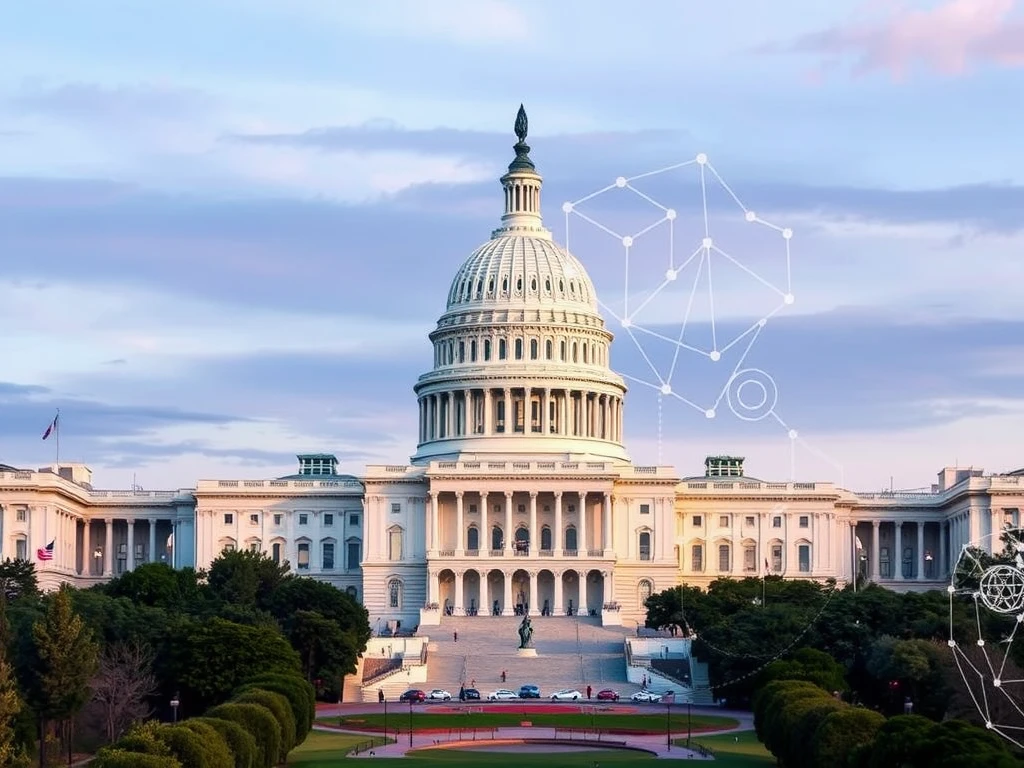Crucial US Senate Stablecoin Vote Expected Before May 26

Attention, crypto enthusiasts! A significant development is on the horizon that could shape the future of digital assets in the United States. Reports indicate that the **US Senate stablecoin vote** could happen sooner than anticipated, specifically before the Memorial Day holiday on May 26. This potential vote is crucial for anyone following **stablecoin regulation** and the broader landscape of **US crypto policy**.
What is the GENIUS Act and Why is it Important?
At the heart of this potential legislative action is the **GENIUS Act**, formally known as the Guiding and Establishing National Innovation for US Stablecoins Act. This proposed **stablecoin bill** was introduced by Senator Bill Hagerty in February and successfully passed the Senate Banking Committee in March. Its main objective is to establish a framework for stablecoins, potentially limiting issuance to entities designated as “permitted payment stablecoin issuers” in the United States. This level of regulation could significantly impact how stablecoins operate and are used within the country.
Will the Senate Vote on Stablecoin Regulation Soon?
According to an April 29 report from Politico, US Senate Majority Leader John Thune reportedly informed Republican lawmakers in a closed-door meeting that the chamber intends to address a **stablecoin bill** before the May 26 Memorial Day holiday. While Thune did not publicly mention crypto or blockchain bills in other addresses, this report suggests legislative movement is underway behind closed doors. The timing indicates a potential push to get this legislation considered in the near term.
How Does This Connect to US Crypto Policy and the Administration?
This legislative push ties into broader discussions about **US crypto policy**. The administration has also shown interest in the space. For instance, an executive order signed on January 23 established a working group to study stablecoins and potential regulatory frameworks. Following this order, Republican lawmakers introduced both the Senate’s GENIUS Act and the House of Representatives’ companion bill, the Stablecoin Transparency and Accountability for a Better Ledger Economy, or STABLE Act.
Are There Conflicts of Interest Concerns?
The administration’s involvement has drawn scrutiny. Critics, particularly Democratic lawmakers, have raised concerns about potential conflicts of interest. These concerns stem from the timing of the executive order relative to the launch of a US-dollar pegged stablecoin, USD1, by World Liberty Financial—a crypto firm reportedly backed by the president’s family. Lawmakers argue that such ties, combined with political influence, could pose significant risks to the financial system as Congress debates **stablecoin regulation** through bills like the GENIUS Act and the STABLE Act.
What’s Next for Stablecoin Legislation?
With the **US Senate stablecoin vote** potentially on the horizon before May 26, all eyes will be on Capitol Hill. The outcome of this vote and subsequent legislative processes will be critical in defining the regulatory future for stablecoins in the US. Both the GENIUS Act in the Senate and the STABLE Act in the House represent significant steps towards formalizing rules for this growing segment of the crypto market. The debate involves not just financial innovation but also considerations of market stability, consumer protection, and political ethics.
In summary, a report suggests a potential **US Senate stablecoin vote** on the **GENIUS Act** could occur before May 26. This development is a key part of ongoing efforts to establish **stablecoin regulation** and shape overall **US crypto policy**. While legislative progress is being made, discussions around potential conflicts of interest add another layer of complexity to this important debate.







